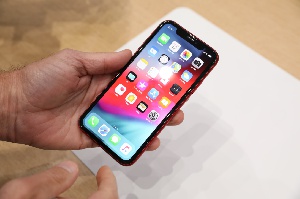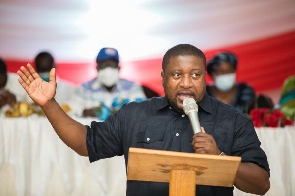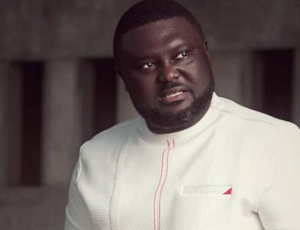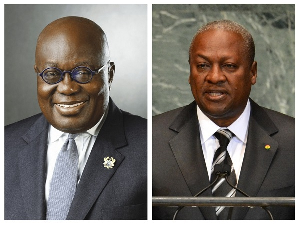Protecting rights of children in conflict with the law: The role of LRC in ensuring smooth juvenile justice system
In a country where implementing children's rights in general remains a major challenge, the idea of according rights to children in conflict with the law can be a formidable task. With too many other children's problems to deal with such as the millions of street children and child labourers, female circumcision, and sexual violence against female children, early child marriages, the needs and rights of juvenile offenders could easily be relegated to the bottom of the government's priorities for children.
Nonetheless, by virtue of ratifying the United Nations Convention on the Rights of the Child (UNCRC) in 1990, Ghana has made a commitment to address the needs and respect the rights of children in Ghana including its juvenile offenders. Thirteen years after ratifying the CRC, the Ghanaian Parliament passed the Juvenile Justice Act 2003 (Act 653).
When Ghana ratified the United Nations Convention on the Rights of the Child (UNCRC) it made a commitment to ensure compliance with the UNCRC by reviewing its children and youth social policies. Yet, to date, there is a little empirical evidence that compares how children’s rights are perceived by professionals at the strategic and operational levels in Ghana.
What rights does the Act accord children in conflict with the law? Do the policies and practices of the new juvenile justice system measure up to the standards of the Convention? These are the key questions that ought to be addressed.
It is no hidden fact that children in conflict with the law or juveniles are one of the less privileged groups the justice system in Ghana does not work for which goes to buttress the point of Ghana’s weakness in compliance, in law and in practice, with the relevant international and regional human rights instruments that it has ratified.
According to some researchers, the new Juvenile Justice Act looks good on paper but argue that there is a colossal gap between policy and practice.
A research conducted by the Department of Social Welfare (DSW) under the Ministry of Youth and Employment, in conjunction with UNICEF: a report on the state of juvenile justice administration in Ghana (a decade assessment: 1993?2003) published in 2005 undoubtedly made painted similar picture about the situation of juvenile offenders in Ghana.
Similarly, a recent study to assess the Status of Juvenile Justice in Ghana conducted by the Commonwealth Human Rights Initiative (CHRI), Africa Office on the back of the above study also made similar significant revelation on the matter and further established that nothing much seems to have changed in the last 6 years and children in conflict with the law as it continues to be vulnerable to the deficiencies of the justice system in Ghana.
Perhaps this is the more reason why many children in Ghana today who are unfortunate to have compromised themselves in one way or the other to have come into conflict with the law instead of being corrected are rather punished as was usually the case with adults
In a bid to help address the challenge, the Legal Resources Centre (LRC), Non-Governmental Organisation committed to the realization of human dignity by building human rights in partnership with the European Union (EU) has embarked on a 3-year (2018-2020) nationwide project which through the legal and policy reforms aims at ensuring that the right input to facilitate the review and amendment of child related legislation for the promotion and protection of child rights are ensured. The project also focuses on providing legal assistance to juveniles in conflict or contact with the law throughout the erstwhile ten (10) regions of Ghana (Greater Accra, Brong Ahafo, Ashanti, Central, Western, Eastern, Volta, Northern, Upper East and Upper West Regions).
Dubbed: “The Child Justice Project” whose overall goal was to bridge the gap between legislation and practice within the Ghanaian Child Justice system has so far witnessed the training and capacities built of 150 securities and law enforcement agencies across the country to effectively promote the child justice system in Ghana. The beneficiaries were made up of the paralegals, officers of the Ghana Police Service, Prisons Service and the Judicial Service with the Immigration Service yet to undergo the training.
Touching on the rationale of the project in an interview, Mr. Robert Noomo Jnr, the Project Officer of Legal Resource Centre (LRC) explained its overall objective was to facilitate the reform of laws, policies and procedures to improve access to justice for children especially the Juvenile Justice Act, 2003 (Act 653), the Children’s Act, 1998 (Act 560) and its amendment, the Criminal Code and Other Offences (Procedure) Act, 1960 (Act 30), the courts Act, 1993 (Act 459) as amended as well as other child related legislation and regulations.
He further explained: “It also seeks to provide legal assistance to at least 350 juvenile in conflict of the law in all the former 10 regions of Ghana during arrest, investigation, pre-trial, trial and committal stages. Also, it will see 500 security officers train in the justice sector including the Police, Immigration, Prisons Services, the Customs Division of the Ghana Revenue Authority, Judicial Service and 150 certified paralegals across the country”, he concluded.
As part of meeting project objectives, the LRC with support from the European Union on Friday November 8, 2019 provided training for 20 Paralegals in Accra to help build their capacities on the need to promote and protect the rights of juveniles and children who fall foul of the law.
The 1-day extensive training which was on the theme: “Justice for Children: Bridging the Gap between Legislation and Practice Project.” Saw the participants enlightened on the rich content of a training manual: “Role of Paralegals in Protecting the Rights of Children”.
Among the long list of topics encapsulated in the training manual include; the Guiding Principles Specific to the Juvenile Justice System, the Ghanaian Legal System, The Constitution, the Children’s Act, Other Relevant Laws, Community Processes of Juvenile Justice and Mandated Reporters of Child Abuse etc.
The training programme was facilitated by Mr Clarke Noyoru, a private legal practitioner with support from Mr. Robert Noomo Jnr.
The trainees were urged to take advantage of the Alternative Dispute Resolution (ADR) mechanism in dealing with matters relating to children. They were also advised to ensure confidentiality at all times in keeping the information about juvenile offenders as well as report accurately and timely to the LRC so their cases can be worked on expeditiously.
A mobile application for reporting suspected instances of children who found themselves in conflict with the law was developed to aid the trainees report accurately and expeditiously on their cases for justice to be served.
The Legal Resources Centre (LRC) is a non-governmental organization with significant community-based grassroots initiatives. Its core mission is to develop human rights within communities where it works to ensure social progress and development using law, justice, development and good governance. In addition to the local human rights capacity in national capacity building, the LRC strives to develop human rights capacity in national policy-making institutions.











